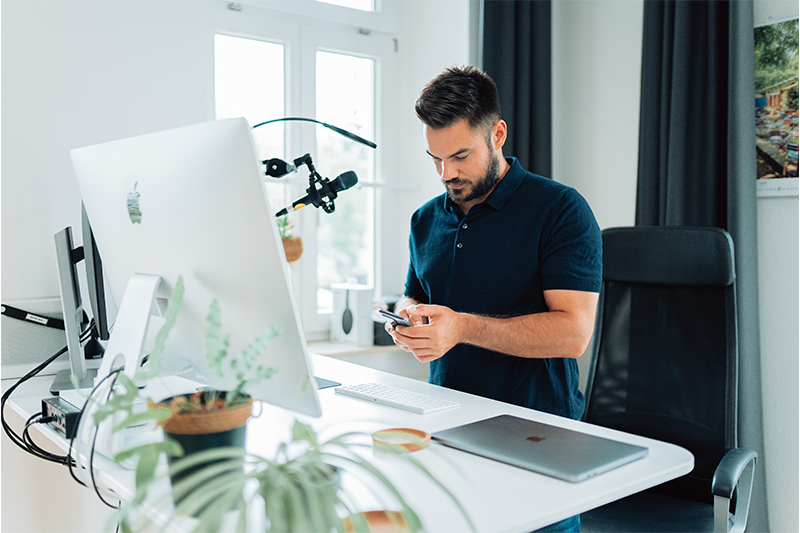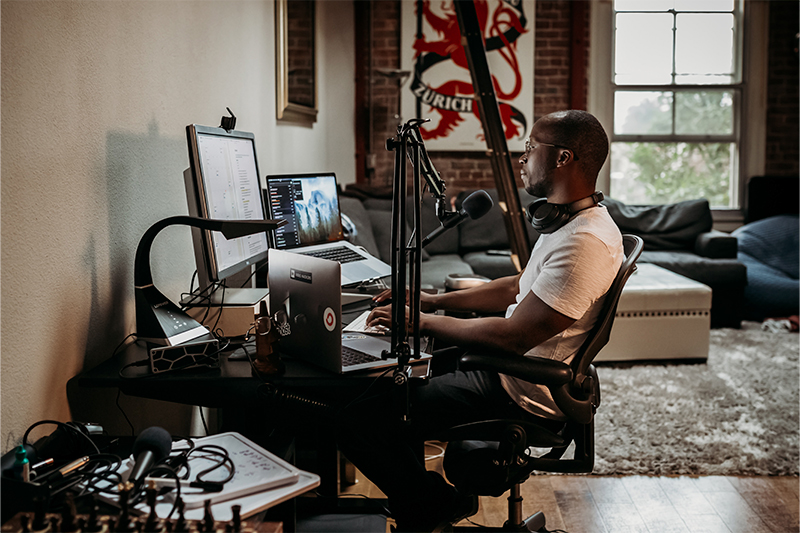
What is an anti-influencer?
Social media is evolving, so I wanted to share when to be an anti-influencer in resilience.
Here are a few examples of general anti-influencers:
The Minimalists: Joshua Fields Millburn and Ryan Nicodemus, known as The Minimalists, are two friends who left their corporate jobs to live more minimalist lifestyles. They now run a website and podcast focused on promoting minimalism and simplicity and encourage their followers to consume less and focus on what truly brings them joy and fulfillment.
Nas Daily: Nuseir Yassin, aka Nas Daily, is a social media personality who creates daily one-minute videos about various topics, often related to travel and culture. He has used his platform to raise awareness about climate change, human rights, and mental health issues and has been vocal about the need for positive social impact.
Ruby Granger: Ruby Granger is a British YouTuber and author who creates content focused on productivity, study techniques, and personal development. She has been vocal about the importance of mental health and self-care and encourages her followers to prioritize their well-being and passions over external validation.
Tiffany Ferguson: Tiffany Ferguson is a YouTuber who creates content focused on social media, technology, and online culture. She often critiques the negative aspects of social media and the internet, such as cyberbullying, misinformation, and privacy concerns, and encourages her followers to use technology more mindfully.
These are just a few anti-influencers who use their platforms to promote essential values and challenge dominant narratives.

The rise of the anti-influencer
An anti-influencer is someone who intentionally goes against the norms of traditional influencers. Unlike traditional influencers who use their online presence to promote products or services, an anti-influencer may use their platform to challenge mainstream ideas, raise awareness about important issues, or present an alternative perspective. Anti-influencers may reject the idea of promoting consumerism and materialism and focus instead on promoting minimalism, sustainability, or other values prioritizing social and environmental responsibility over personal gain.
While traditional influencers often focus on presenting a polished and curated image, anti-influencers may intentionally give a more authentic and raw portrayal of their lives and experiences. Overall, being an anti-influencer is about rejecting the traditional influencer model and instead using your platform to challenge the status quo, promote essential values, and positively impact the world.

Benefits of anti-influencers
There are several potential benefits of anti-influencers, including:
Raising awareness about important issues: Anti-influencers often use their platforms to highlight significant issues. By sharing their perspectives and personal experiences, anti-influencers can help to bring attention to important causes and inspire others to take action.
Promoting authenticity and transparency: Anti-influencers often reject presenting a perfect, curated image of themselves and their lives. Instead, this can help to promote greater transparency and authenticity in the online world and encourage others to be more honest and open about their own experiences.
Challenging the status quo: By rejecting traditional influencer norms and presenting an alternative perspective, anti-influencers can help promote new ways of thinking. This can be particularly powerful in fields where there is a dominant or established narrative that may not accurately reflect the experiences or needs of all people or organizations.
Encouraging responsible consumption: Many anti-influencers prioritize sustainability, minimalism, and responsible consumption over promoting materialism and consumerism. By encouraging others to adopt these values, anti-influencers can help promote more responsible and sustainable lifestyles that benefit individuals and the planet.
Overall, anti-influencers can play an important role in challenging dominant narratives, and encouraging greater authenticity and transparency in the online world.

Influencing the resilience industry
Currently, there are dominant norms related to regulations or standards regarding risk, business continuity, safety, and security. I recently wrote about The Myth Of ChatGPT, both recognizing artificial intelligence as a tool for practitioners while warning that the results may not always be accurate. As an influencer, I’ve spoken on The Dilemma Of Personal Branding, how it is vital to our professional careers but that we must be true to our authentic selves. In the Business Continuity Plans Are Dead, I challenge the idea of a document for adequate business recovery.
Being an anti-influencer means risking and having The Courage To Be Disliked. On my YouTube Channel, I interviewed Mark Armour, who, along with David Lindstedt, advocates Adaptive Business Continuity that rejects the traditional notion of Business Impact Analysis (BIA) and planning. Truly, post-COVID, we all need to rethink outdated modalities, especially in the face of The C-suite’s 2023 Outlook On Crisis Preparedness, where most CEOs are not confident in their company’s ability to respond to disasters effectively. So, I’ll continue to straddle the line between expert, sharer of helpful products or services, and questioner of our current practices. This approach feels right to me.

Tips for when to be an anti-influencer
Being an anti-influencer is a personal choice, and there are several reasons why someone might choose to adopt this role. Here are a few situations where being an anti-influencer might make sense:
You disagree with the values promoted by mainstream influencers: If you feel that the influencers in your niche are promoting values or behaviors that you don’t agree with, you may want to take a stand and present an alternative perspective.
You want to challenge the status quo: Sometimes, being an anti-influencer is about questioning the established norms and challenging the dominant ideas in your field. This can be a powerful way to create change and bring attention to important issues.
You want to be authentic: Sometimes, being an anti-influencer is simply about being true to yourself and your values. You may feel that the pressure to conform to specific standards or expectations in your niche is too great and that being an anti-influencer is the only way to stay true to your beliefs.
You want to avoid contributing to consumerism: Some anti-influencers reject promoting products and services for profit and instead focus on promoting a more minimalist lifestyle or advocating for sustainable practices.
Ultimately, the decision to be an anti-influencer is personal, and it’s essential to consider your values and motivations before taking on this role. At this time, I see myself as a mix, but others may take the approach of being on or the other.

Social media, thought-leaders, and influencers
No industry is immune to the influence of sharing on social media (“socials”). Many consultants and professionals seek to share their expertise with others. Often, the goal is altruistic–as it should be. However, many are trying to make a living from providing that expertise. That’s completely understandable. Personally, I am okay with either and think many of us try to do both.
If someone provides real value and shares accurate information (to the best of their knowledge), either situation is valid. I started Disaster Empire four years ago to share my voice. I also wanted to highlight the fantastic work my peers are engaged in worldwide. So, I launched the Disaster Empire YouTube channel last year to do just that. I hope you will subscribe and follow the channel.
Many people on the podcast are familiar names, but others aren’t. So, I aim to bring these emerging thought leaders and innovators to your attention. They are worth checking out. It was great to have Steven Eberlein as a podcast guest earlier this year, as his Ted Talk inspired an early blog on this site, Ten Inspirational Ted Talks for Disaster Professionals. He’s now with Ethos Preparedness, training companies on disaster preparedness. So, both anti-influencers and influencers have their place, but let me know your thoughts in the comment section below.
Did You Know?
Disaster Empire blogs contain embedded links to source materials, articles of interest, videos, books, and training I recommend. Just click on the blue embedded link to access the resource.
